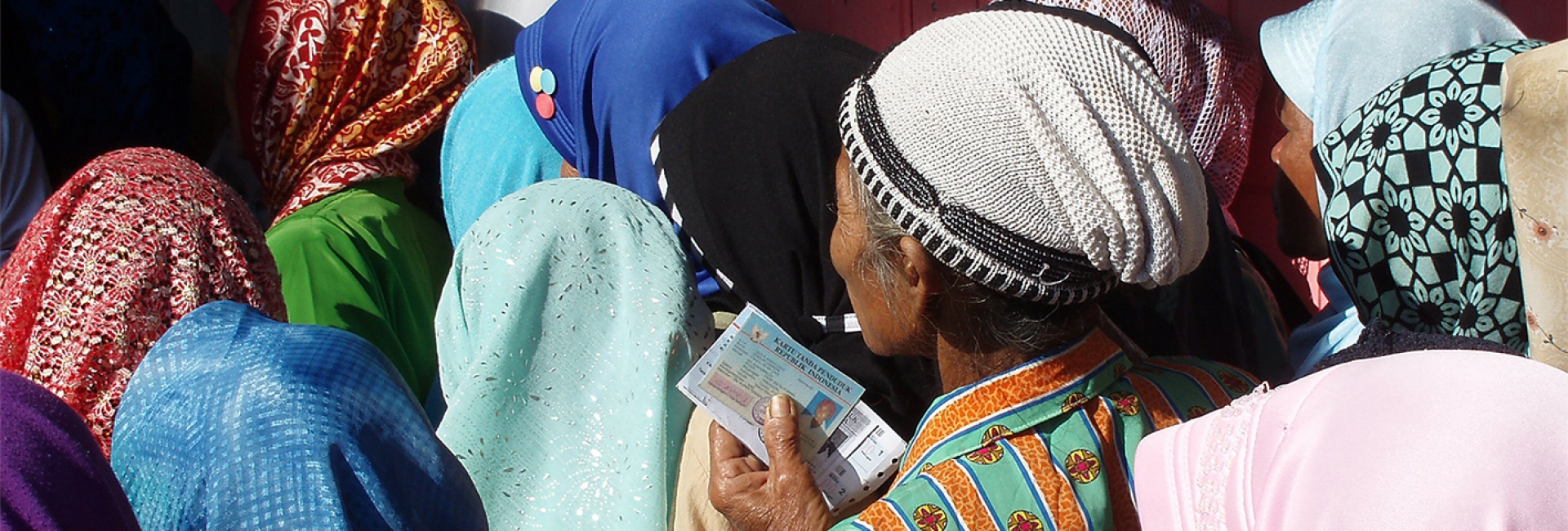The government is providing direct cash transfer (BLT) to the community groups most affected by the pandemic: the poor, informal workers, and online transportation business actors. What are the mechanisms for data collection and assistance distribution? SMERU’s recommendations are as follows.
In the context of the COVID-19 pandemic, BLT is given to the poor to maintain their purchasing power and to business actors so that they can remain in the business and to minimize layoffs. Taking into considerations the diverse characteristics of the poor and vulnerable groups in Indonesia, the government cannot apply only one mechanism for the targeting and disbursement of BLT.
In this regard, SMERU has come up with the following policy recommendations for data collection of beneficiaries adjusted to the current prioritized needs.
There needs to be a mechanism for data collection of prospective beneficiaries and the disbursement of BLT so that people can easily access the assistance, and to prevent crowds.
Data of the prospective beneficiaries can come from three sources:
- Integrated Social Welfare Data (DTKS) from the Ministry of Social Affairs for the bottom 40% of the population
- Data from online transportation providers on their partners (Gojek Indonesia and Grab Indonesia)
- Self-registration for informal business actors
Specifically for self-registration, the government needs to collaborate with telecommunications service providers, such as Telkom Indonesia, Indosat Ooredoo, XL Axiata Indonesia, Smartfren, and Tri Indonesia, to send notification text messages about the BLT program.
The notification text messages should contain information about the program, eligibility of BLT beneficiaries, and the registration process for beneficiaries through several channels: applications, text messages, or going to the predetermined location (for those who do not have access to telecommunications devices). The government needs to prepare the verification mechanism so that the data collection from the three sources does not overlap.
To verify, use an ID number on the ID card and family card (KK), the data is matched with SIM card registration data. Verification through an ID number on the ID card and KK can also be used to distribute BLT to the poor and vulnerable wherever they are.
Like the mechanism for data collection of the beneficiaries, the government also needs to prepare distribution mechanism options based on the diverse characteristics of the beneficiaries.
The mechanism for distributing the assistance should be made different between urban and rural areas. For people in urban areas, which are more heterogeneous with higher digital literacy rates, the government can work with fintech start-ups (LinkAja, Dana Wallet Indonesia, Gopay Indonesia, OVO) and minimarket chains (Alfamidi, Alfamart, Indomaret). The distribution of cash assistance in urban areas requires that the beneficiaries download and install fintech applications. Digital data on the application can be used for other government programs in order to support financial inclusivity and the achievement of various SDGs.
In rural areas, a conventional distribution mechanism is more recommended as the characteristics of the people are more homogeneous with relatively lower digital literacy rates and more limited infrastructure. BLT distribution and disbursement can be conducted through a bank transfer or LakuPandai (branchless banking) program, initiated by the Financial Services Authority (OJK)
The cash assistance can also be distributed through digital finance services or in the form of electronic money that the beneficiaries receive on their cellular phone and cash out the money at agents appointed by the executing bank.
To close, the COVID-19 pandemic can become a starting point for the central government and regional governments to take data updating initiatives more seriously, especially data for social safety nets. To quote President Joko Widodo: "Data is a new type of wealth. Today, data is the new oil". Moreover, collaboration with the private sector regarding data provision is necessary so that the impact of the pandemic can be dealt with without delay. This database can be used by, for example, the Ministry of Finance and the Ministry of Labor.




